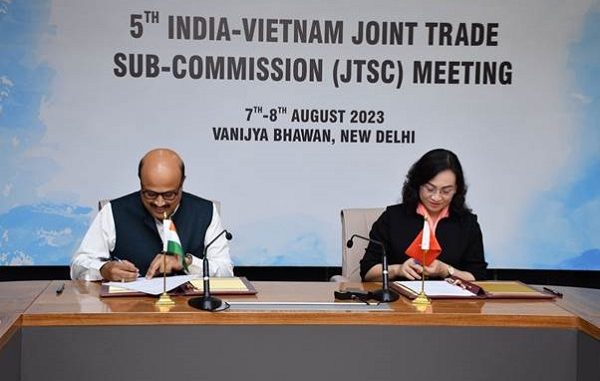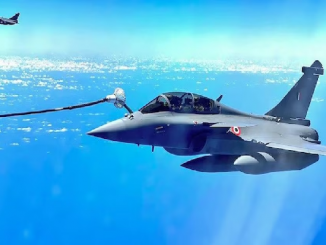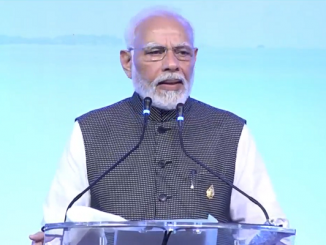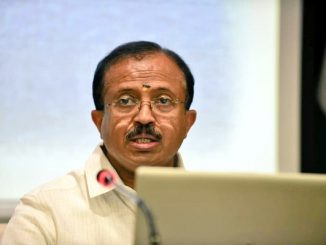
July 09: The 5th meeting of the India-Vietnam Joint Trade Sub-Commission (JTSC) was held in New Delhi today. The meeting was co-chaired by the Additional Secretary, Department of Commerce, Ministry of Commerce & Industry, Shri Rajesh Agrawal from the Indian side and Deputy Minister, Ministry of Industry and Trade, Ms Phan Thi Thang from the Vietnam side. This meeting was held after a gap of more than four years since the 4th JTSC meeting held in January 2019, on account of the COVID-19 pandemic and other factors.
Vietnam is the 23rd largest global trade partner of India and the 5th largest among ASEAN countries with bilateral trade of USD 14.70 Bn during 2022-23. Vietnam accounts for 11.2% of India’s total trade with ASEAN. Vietnam is an important destination for India’s iron & steel and agricultural and animal products mainly meat products, animal fodder, cereals and marine products.
Both sides reviewed the progress on bilateral trade and economic cooperation and discussed ways to unlock the vast untapped potential in bilateral trade to enable the business communities from the two sides to benefit from the partnership of two of the fastest-growing economies.
Both sides identified potential sectors such as agriculture, fisheries, textiles, footwear, pharmaceuticals, chemicals, fertilizers, machinery and equipment, consumer products, energy and automobile industry, for expanding trade cooperation and agreed to work together to resolve market access issues and technical barriers faced by the exporters through regular and sustained bilateral discussions.
The Indian side raised the issues of pending registration of Indian fishery and meat establishments for export, restricted market access in public procurement of drugs for Indian pharmaceutical companies and high anti-dumping duties imposed on Indian polyester filament yarn products and sorbitol.
The Indian side highlighted the potential in service sector cooperation and suggested cooperation in IT, financial services, education sector, tourism, healthcare, telemedicine, medical tourism and start-up ecosystem. The Indian side also suggested Mutual Recognition Agreements (MRAs) on professional services, internationalization of RuPay cards, QR-based payment system, and domestic currency trade settlement.
Both sides discussed logistics challenges affecting bilateral trade and agreed to continue efforts for exploring direct shipping services, collaboration in freight movement and improving air connectivity.
Disclaimer: We donot claim that the images used as part of the news published are always owned by us. From time to time, we use images sourced as part of news or any related images or representations. Kindly take a look at our image usage policy on how we select the image that are used as part of the news.


